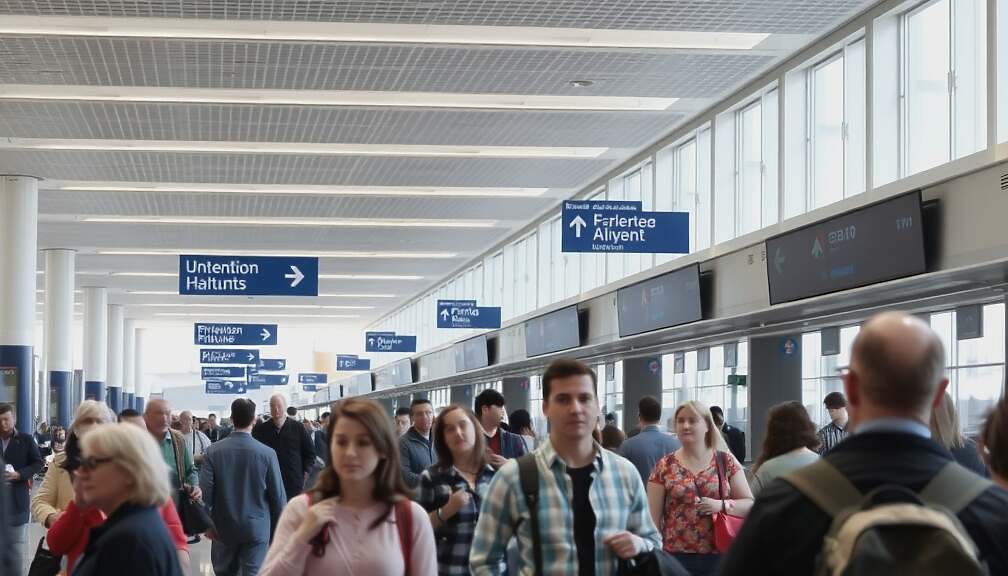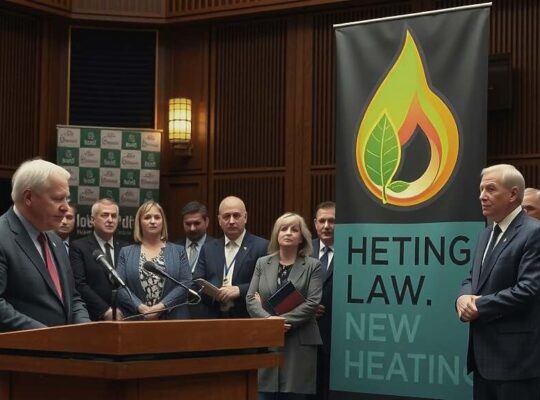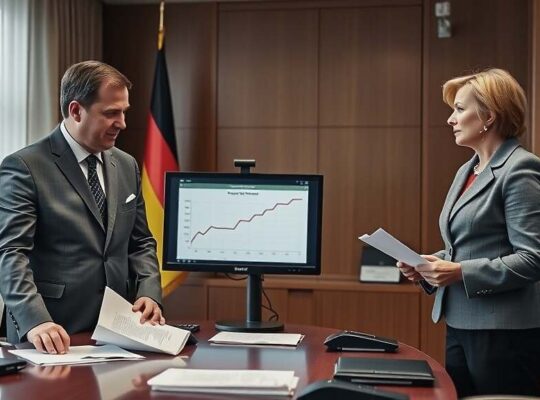The Lufthansa Group is reportedly considering a significant reduction in its domestic flight operations, a move that sparks concerns about regional connectivity and raises critical questions about the German government’s aviation policy. According to Lufthansa CEO Carsten Spohr, the airline is facing mounting pressure due to escalating taxes and fees, pushing certain routes into unsustainable financial territory.
Spohr stated in an interview with “Welt am Sonntag” that unless these location-specific burdens are eased, further flight cancellations are inevitable. He specifically highlighted the potential loss of around one hundred domestic flights weekly during the upcoming summer season. The core issue, he explained, stems from a doubling of state-imposed location costs since 2019, rendering operations on select routes economically unviable.
Routes connecting major hubs, like Munich, to regional centers, such as Münster/Osnabrück and Dresden, are currently under intense scrutiny, with Lufthansa executives admitting they are operating these services at a deficit on a daily basis. This predicament underscores a widening gap between the airline’s operational costs and revenue generation, placing a strain on the group’s overall financial health.
The potential cuts have significant implications for regional communities, particularly those reliant on air travel for business and personal connections. The Flughafen Münster/Osnabrück, for example, faces the prospect of losing its last link to a major Lufthansa international hub should the route be eliminated. This highlights the potential for disproportionate impact on smaller airports and the regions they serve.
The Lufthansa’s warning represents a direct challenge to the German government’s current aviation taxation strategy and provokes a debate about the balance between environmental sustainability, economic viability and regional accessibility. Critics argue that the existing framework is stifling competition and jeopardizing essential transportation links, while proponents maintain the taxes are necessary for promoting greener aviation practices. The unfolding situation places the government in a difficult position, requiring a careful reassessment of its policies to avoid further disruption to Germany’s domestic air travel network.












